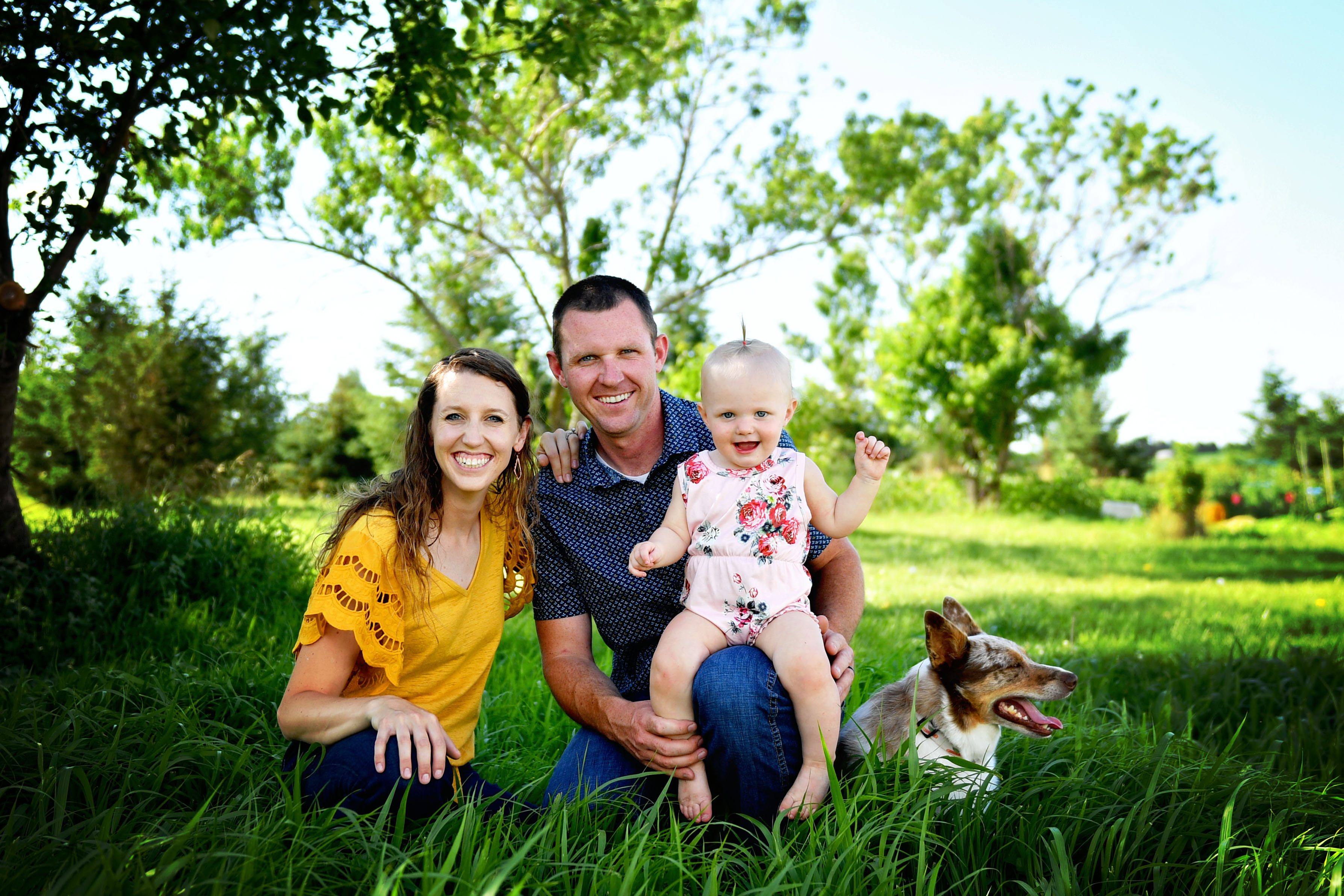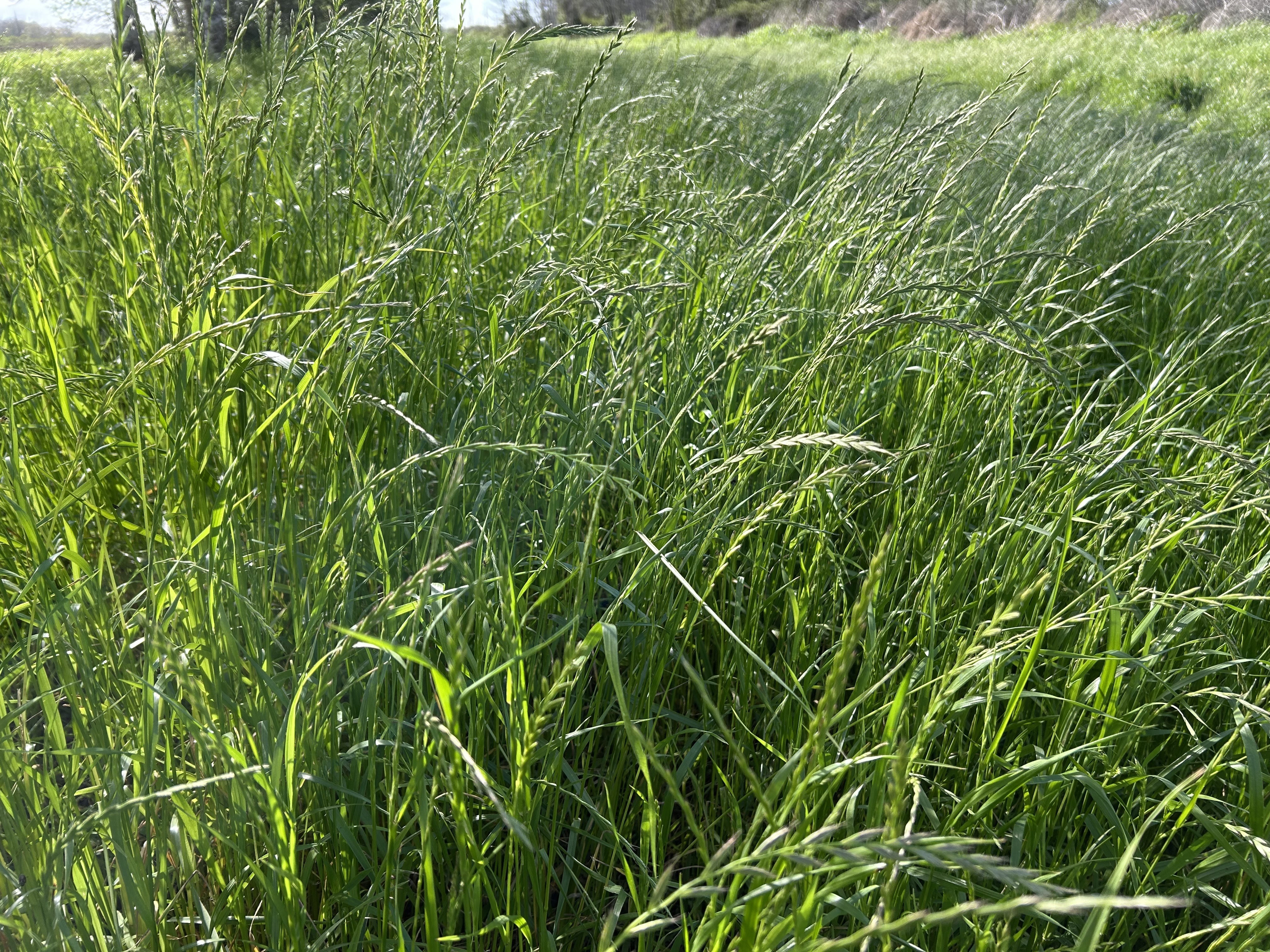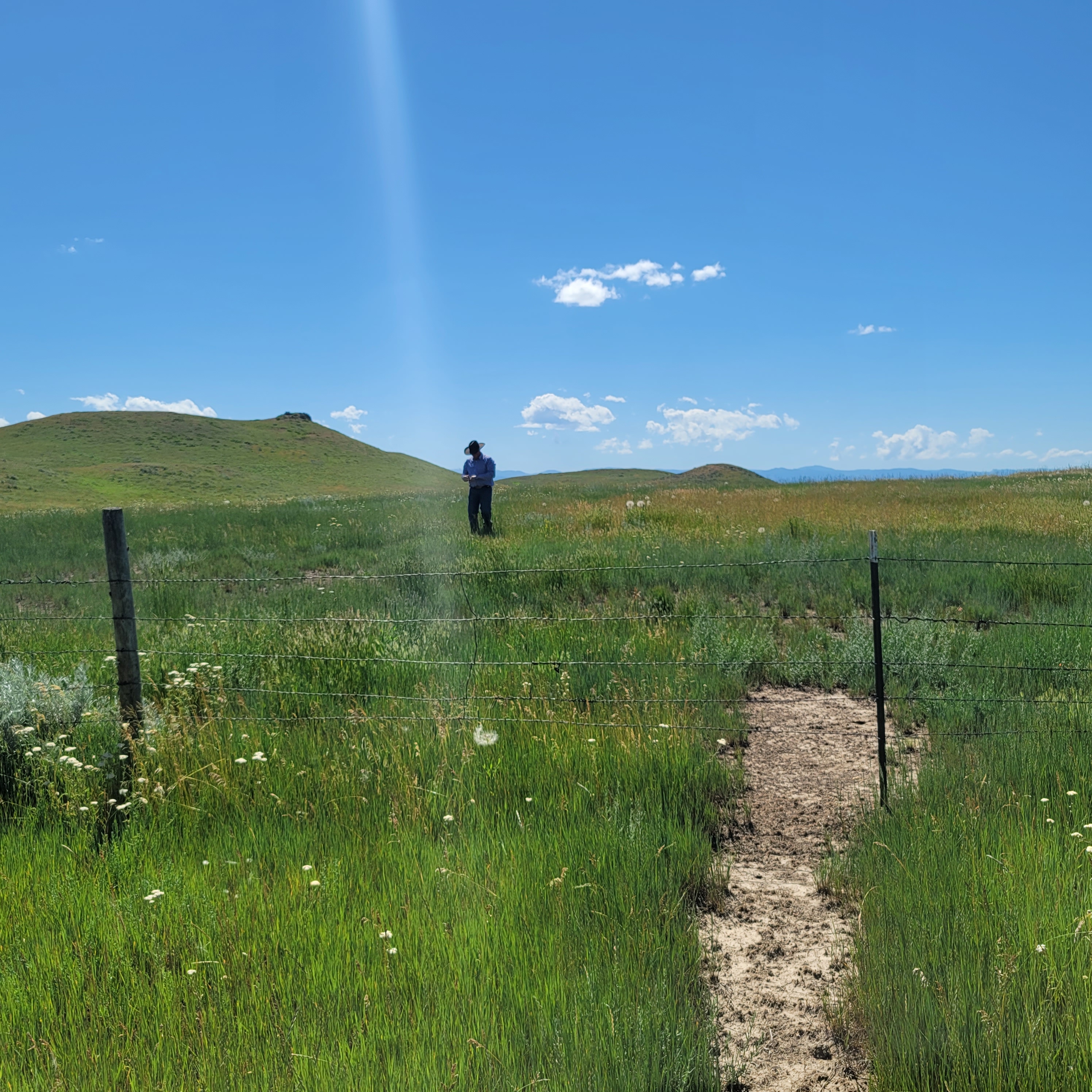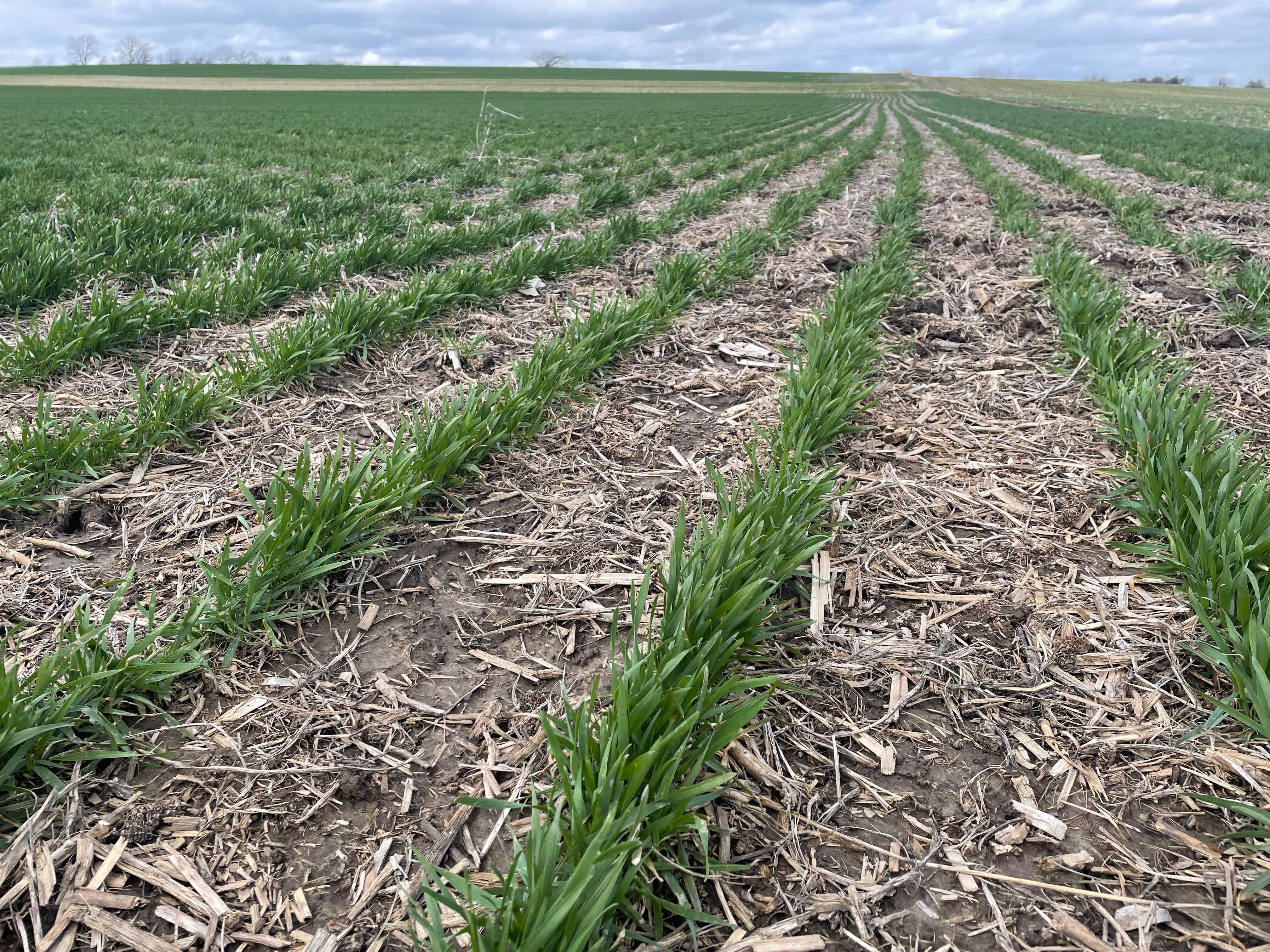Farm and Ranch Family finds Unity and Purpose with Agoro Carbon
You can find Lisa, her husband Alex Kubik, and their two-year-old daughter Kennedy near Traer, Iowa, surrounded by cropland and a herd of grazing mama cows. You can also find a young family willing to change for the benefit of their soil and livestock. Part of this change has led them to Agoro Carbon Alliance.
“We are the fourth generation to live on my husband’s family farm,” she began. “We have a cow/calf operation, as well as a few meat goats. We also put up a lot of grass and alfalfa hay and raise corn and soybeans too.”
Kubik also serves as the Inside Sales Manager for Agoro Carbon Alliance – U.S., a position that came about after years of frontline experiences as both a farmer herself and serving farmers in various capacities in the industry, “The cool thing is how focused Agoro is on the farmer. They are putting a lot of thought into how the program will truly benefit the farmer and what needs to be done because of that.”
Near Lake Mills, on a North Central Iowa farm, is where Kubik hails from, “My dad and brother still farm there raising corn and soybeans. Growing up, I was involved in 4-H and FFA and showed pigs and horses at the county fair. I honestly grew up in a part of the state where conventional farming was most prevalent. Things like cover crops and no-till were not implemented as often.”
Kubik attended Iowa State University and pursued a degree in agricultural business, with minors in agronomy and animal science, “I always liked agronomy and livestock. After college, I took a job where I got to be part of a retail co-op serving as an agronomist and selling directly to customers. There I worked with farmers to select the correct chemicals, fertilizer, and seed for their operation. It was fun working directly with farmers, helping them make decisions on their operations.”
Most rewarding for Kubik has always been the frontline farmer-facing opportunities. She has also always had a passion for conservation and finding ways to farm better. That’s why the National Corn Growers Soil Health Partnership and later her role at Agoro became such great steps in her professional journey.
“As part of the Soil Health Partnership, I worked with farmers to conduct on-farm research to test the feasibility of practices such as cover crops and no-till as well as nutrient management. I remember one of the farmers enrolled in our research program very well. I was visiting him one day while we were doing a cover crop trial on his farm,” Lisa began relaying the story. “It had been raining and he told me he wanted to go out to the research field. There was a corner of the field that always had a really wet spot on it. We went out to the field and this time there was no water standing in that corner, while right across the fence line on his neighbor’s farm, there was water. He attributed that change to the cover crops. It is fun to see results like this in the field.”
Now at AgoroCarbon, Kubik appreciates the chance to tell farmers there are real economic incentives to changing their operation by broadening their conservation mindset, “I tell the farmers I talk to if you are looking at changing something already, Agoro Carbon is for you.”
“I had a farmer approach me recently at a farm show who said, ‘Okay, so tell me about this carbon market thing. Because, as much as we may or may not want to do this, I think we’re going to have to at some point,’” Kubik recalled. “Farmers are surprised by how flexible and in-tune with the farmer and rancher the Agoro Carbon program really is and how easy it is to make the program fit their operations. As far as the payments and contracts, we can really customize the Agoro Carbon program to fit their farm or ranch and what makes sense for them.”
Because Kubik and her husband are also daily assessing how to improve their own ag operation, she can relate wholeheartedly to the farmers and ranchers she is serving through her work at Agoro Carbon, “We raise a commercial cow herd made up of primarily Angus, Simmental and some Charolais. We share the herd between Alex, myself and his father. His sister has purchased a few cows also.”

“My husband and I rotationally graze our pasture with a system we built from scratch,” she went on to explain. “In that pasture, we see a lot more productivity of both the grass and the cattle. The cows are coming off of the rotationally grazed land more conditioned and seem to breed back better. The system is definitely working. We are also doing inter-seeding of clovers, alfalfa, and a couple other grass species this year.”
On the row crop side of things, Kubik said they have found a lot of success with cereal rye. The cover crops also make great feed for cattle and great cover for the soil too, “We have cows out in the cornfield around our home place all winter. When the crop residue is gone and the ground is thawing, it can be pretty muddy. Part of the cornfield we use as our calving pasture. The last couple of years we have been fencing a portion of the field off and allowing the cereal rye to grow. When it hits March, they have a nice stand of fresh pasture to graze and calve on.”
For Kubik, working for Agoro Carbon along with her role as an independent farmer and rancher goes hand in hand. She said these roles combine to benefit the land, the pocketbook, and are crucial when it comes to making a positive impact on the environment for future generations, “Agoro Carbon is the day job that we incorporate with the farming commitment we have. It’s all something I am really motivated to be a part of and when you see a new baby calf on the ground, there’s nothing better to cap off your day.”
There’s also nothing better for Kubik than helping other farmers and ranchers find success, all while creating community and genuine relationships between neighbors, “Being farmers ourselves, I hope we can continue to share our experiences making changes on the farm and ranch with others. One of the best parts is learning from other farmers too – sharing tips and picking up knowledge and successes from each other. That’s what it’s all about.”
Learn more here.


